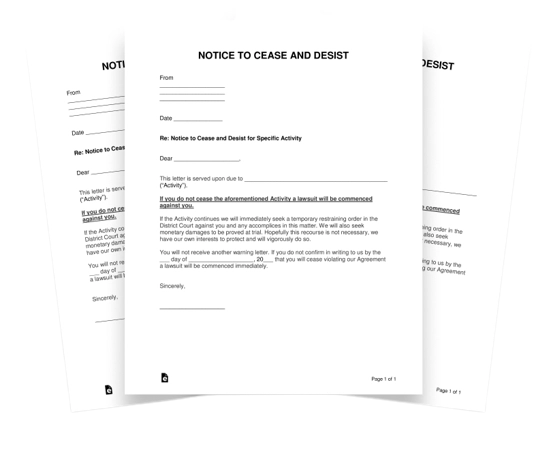White Label Agreements

Download a Free White Label Agreements template
Created and approved by the experts at CMI Group for your use.

Download a White Label Agreements template
Created and approved by the experts at CMI Group for your use.
Starting a new company can be challenging, particularly when it involves developing new products and services. But what if there was a method to provide high-quality, customizable goods without incurring additional costs or exerting additional effort to make them yourself? Introducing private label contracts.
White label partnerships enable companies to work with producers or vendors who can offer ready-to-sell goods or services that they can market under their own brand name. Businesses are able to create a recognizable brand identity without the additional work of product development thanks to this, which also saves them time and money on manufacturing costs.
We’ll discuss the benefits of white label deals for startups in this blog. We’ll talk about the advantages of using white label goods and services, the financial savings they bring, and how they can help new businesses establish better brands. We’ll also explore the potential risks and difficulties associated with these kinds of agreements, as well as advice for choosing the ideal white label partner. You’ll know more about white label agreements by the conclusion of this blog and how they can benefit your startup.
Get a White Label Agreements template created by CMI’s expert Lawyers.
Cost Savings And Other Financial Advantages Of White Label Agreements
White label agreements offer startups a range of financial advantages. In this section, we’ll discuss how white label agreements can help startups save money and grow their businesses.
White label contracts are becoming more and more common in business, and with good cause. These contracts enable businesses to provide premium goods or services under their own brands without having to create them internally. However, what are white label agreements precisely, and how do they operate?
White label deals are fundamentally partnerships between a business and a manufacturer or supplier. A product or service is "white-labeled" by the producer or provider so that the business can sell it under its own brand name. The business then offers the good or service to its clients, typically at a premium.
White label agreements are not a recent idea; they have been in use across many sectors for a long time. For instance, grocery shops frequently stock store brands or generic goods that are actually produced by larger corporations. The retailer does nothing more than mark the item with their brand name and sell it.
The ability for businesses to offer a broader variety of goods or services without having to make an investment in product development is one of the greatest benefits of white label agreements. Small businesses and startups that might not have the means to develop their own products from scratch can particularly benefit from this. White label agreements also give businesses the chance to keep control over the branding and promotion of their goods, which can foster consumer loyalty and brand awareness.
It's crucial to remember that not all white label deals are the same, though. Before signing a contract, businesses should thoroughly investigate prospective partners and assess their skills and background. Additionally, to ensure a successful partnership, it's critical to negotiate advantageous terms for both sides.
Free 15-minute consultation for White Label Agreement with our experienced lawyers.
How White Label Agreements Help Startups Build Stronger Brands
Finding The Right White Label Partner For Startups
The degree of communication and ongoing help you will get from the white label partner should also be taken into account. Ensure that they are accessible to address any queries or worries you may have and that they are prepared to collaborate with you to resolve any issues. This might entail giving you ongoing coaching or assistance to make sure you can promote and sell the merchandise successfully.
Startups can find the ideal white label partner to assist them in producing high-quality, customizable products that satisfy the particular requirements and objectives of their business by using the advice in this article.
Customer Testimonial
Our Happy Clients
 2024-05-2710/10 for Professionalism, Due diligence and very easy to deal with. Definitely recommended 😊 Tina does whatever she could to ensure your best interest is represented 👍🏻 The CMI Legal team is a team you can trust. There is nowhere else I’d rather be going to for legal advice, you soon will learn why, too.
2024-05-2710/10 for Professionalism, Due diligence and very easy to deal with. Definitely recommended 😊 Tina does whatever she could to ensure your best interest is represented 👍🏻 The CMI Legal team is a team you can trust. There is nowhere else I’d rather be going to for legal advice, you soon will learn why, too. 2024-05-24Tina Tang is doing excellent service job as a profesional lawer and provide valued information about property purchase issue.Thank you so much,we are appreciated to your skilled help and hope to cooperate with your esteemed company,current residential living apartment 506/2-4 Culworth Ave Killara should be put in market,we hope Tina Tang will provide support as well.thank you so much. Joe Shi
2024-05-24Tina Tang is doing excellent service job as a profesional lawer and provide valued information about property purchase issue.Thank you so much,we are appreciated to your skilled help and hope to cooperate with your esteemed company,current residential living apartment 506/2-4 Culworth Ave Killara should be put in market,we hope Tina Tang will provide support as well.thank you so much. Joe Shi 2024-02-22CMI are very knowledgeable regarding Intellectual Property Law. I spoke with John & he helped me talk through my options & potential outcomes. He was very considerate & explained everything in detail, which I appreciated greatly.
2024-02-22CMI are very knowledgeable regarding Intellectual Property Law. I spoke with John & he helped me talk through my options & potential outcomes. He was very considerate & explained everything in detail, which I appreciated greatly. 2024-02-12I am highly grateful for all the assistance I was provided by CMI Legal during my home purchasing process. Tina has guided me through 2 separate purchases and she has been professional and prompt with personalized advice. I would be completely overwhelmed were it not for her legal expertise.
2024-02-12I am highly grateful for all the assistance I was provided by CMI Legal during my home purchasing process. Tina has guided me through 2 separate purchases and she has been professional and prompt with personalized advice. I would be completely overwhelmed were it not for her legal expertise. 2024-02-01I really recommend the legal service here! Tina is my lawyer and she is very helpful for all the works, and she always communicates with me with all the details very well. I will definitely work with her again in the future.
2024-02-01I really recommend the legal service here! Tina is my lawyer and she is very helpful for all the works, and she always communicates with me with all the details very well. I will definitely work with her again in the future. 2023-12-05Working with Tina through all steps of our property purchase was such a delight. She provided frequent updates at every step of the process so we always knew where everything was up to. We were always provided with clear and concise instructions and never left wondering what to do next. Would highly recommend!
2023-12-05Working with Tina through all steps of our property purchase was such a delight. She provided frequent updates at every step of the process so we always knew where everything was up to. We were always provided with clear and concise instructions and never left wondering what to do next. Would highly recommend! 2023-10-03Thank you for your Excellent support your understanding to our request help us with the process and an fantastic advice to our Family Business, thank you CMI Legal Pty Ltd Team at Chatswood,NSW for all the effort to put to focus for all the details to help and support us. We are incredibly grateful to you for your help.Thank you for the outstanding SERVICE to us and your Customer. Thank you to your nice receptionist for great customer services.. receptionist
2023-10-03Thank you for your Excellent support your understanding to our request help us with the process and an fantastic advice to our Family Business, thank you CMI Legal Pty Ltd Team at Chatswood,NSW for all the effort to put to focus for all the details to help and support us. We are incredibly grateful to you for your help.Thank you for the outstanding SERVICE to us and your Customer. Thank you to your nice receptionist for great customer services.. receptionist 2023-10-03Professional and down to earth, willing to listen to my issues without prejudice. Highly recommendGoogle rating score: 4.8 of 5, based on 49 reviews
2023-10-03Professional and down to earth, willing to listen to my issues without prejudice. Highly recommendGoogle rating score: 4.8 of 5, based on 49 reviews






